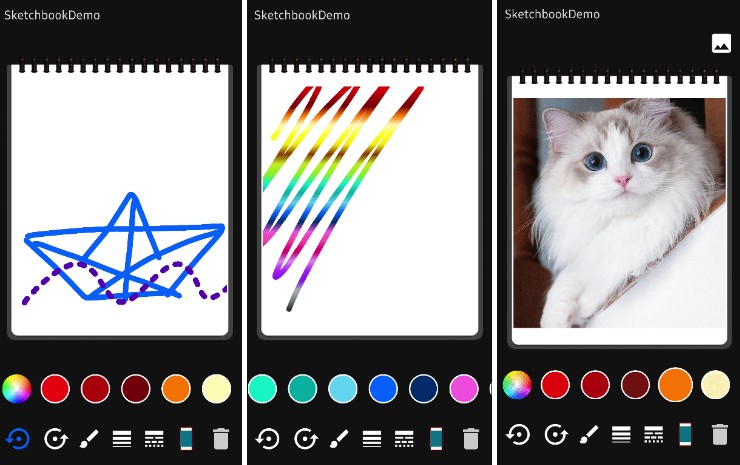ViewBindingAnnotations
This is a small library that will simplify the viewBinding usage.
It will be helpful for large projects or just to avoid binding initialization in every activity/fragment via using the generics and passing the binding class to your BaseActivity/BaseFragment class.
Install
Gradle Dependency (Module level)
Since it uses the AnnotationProcessor under the hood you need to add kapt:
plugins {
...
id 'kotlin-kapt'
}
Enable the viewBinging, of course:
android {
...
buildFeatures {
viewBinding true
}
}
And add the dependency:
dependencies {
...
implementation 'com.github.Kobanister:ViewBindingAnnotations:$latestVersion'
kapt 'com.github.Kobanister:ViewBindingAnnotations:$latestVersion'
}
Usage
The library contains annotations for fragment (@BindFragment) and activity (@BindActivity).
Activity usage
- Add
@BindActivityannotation to you Activity class:
@BindActivity
class MainActivity : BaseActivity<ActivityMainBinding>() {}
- Add the logic to the
BaseActivity:
private var _binding: VB? = null
open val binding: VB
get() = _binding ?: throw Throwable("Binding must not be null")
override fun onCreate(savedInstanceState: Bundle?) {
super.onCreate(savedInstanceState)
...
this._binding = BindingFactory.getBinding(this, null)
setContentView(binding.root)
}
- You are ready to use the
bindingin your Activity:
binding.tvTitle.text = "Hello Binding! (From Activity)"
Fragment usage
- Add
@BindFragmentannotation to you Fragment class:
@BindFragment
class MainFragment : BaseFragment<FragmentMainBinding>() {}
- Add the logic to the
BaseFragment:
private var _binding: VB? = null
protected open val binding: VB
get() = _binding ?: throw Throwable("Binding must not be null")
override fun onCreateView(
inflater: LayoutInflater,
container: ViewGroup?,
savedInstanceState: Bundle?
): View? {
...
this._binding = BindingFactory.getBinding(this, container)
return binding.root
}
override fun onDestroyView() {
...
_binding = null
super.onDestroyView()
}
- You are ready to use the
bindingin your Fragment:
binding.tvTitle.text = "Hello Binding! (From Fragment)"
TODO LIST
- Add extensions for the
DialogFragmentandRecyclerView.ViewHolder
Honorable mentions
Many thanks to @aengussong for helping me out ?
License
Please see LICENSE


